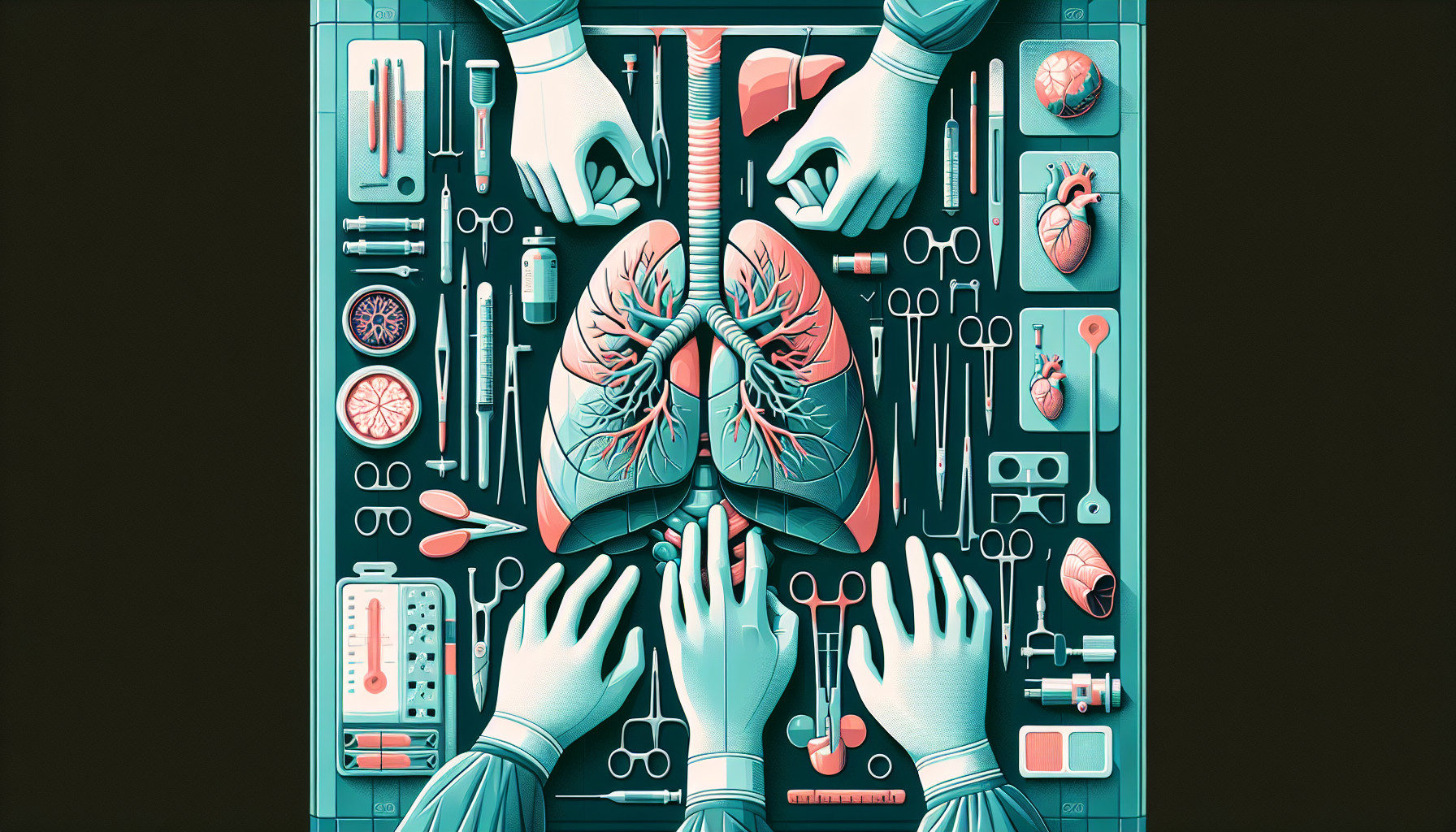Our Summary
This research paper discusses the latest advancements in the surgical treatment of non-small cell lung cancer (NSCLC). Despite progress in other areas, surgery is still the main treatment choice when the patient can physically handle lung removal. The use of low-dose computed tomography (CT) scans to screen for lung cancer has led to more detection of small growths in the lungs. The paper reviews different methods used to locate these growths to aid in surgical removal, especially when a needle biopsy fails to diagnose the tissue. The paper also covers debates about using less extensive surgeries for early stage NSCLC, and the surgical treatment of advanced NSCLC. Lastly, it discusses the complex surgical treatment of T4 NSCLC lung cancers, which are very advanced and invasive.
FAQs
- What are the latest advancements in the surgical treatment of non-small cell lung cancer (NSCLC)?
- How does the use of low-dose computed tomography (CT) scans aid in the detection and surgical treatment of lung cancer?
- Are less extensive surgeries being considered for the treatment of early stage NSCLC, and what are the debates surrounding this?
Doctor’s Tip
A helpful tip a doctor might tell a patient about lung resection is to follow all pre-operative instructions carefully, such as fasting before surgery and stopping certain medications. Additionally, it is important to follow post-operative instructions, including taking pain medication as prescribed, doing breathing exercises to prevent pneumonia, and attending follow-up appointments. It is also important to maintain a healthy lifestyle, including quitting smoking and exercising regularly, to promote optimal healing and lung function after surgery.
Suitable For
Patients who are typically recommended for lung resection include those with early stage non-small cell lung cancer (NSCLC) who are physically able to undergo surgery. Additionally, patients with small growths in the lungs detected through low-dose CT scans, as well as those with advanced NSCLC that can be surgically treated, may also be candidates for lung resection. Patients with T4 NSCLC, which is very advanced and invasive, may also be recommended for lung resection, although the surgery for these cases is more complex. Ultimately, the decision to recommend lung resection will depend on the individual patient’s overall health, the stage and characteristics of their lung cancer, and other factors.
Timeline
Before lung resection:
- Patient may undergo a low-dose CT scan for lung cancer screening.
- Small growths or nodules may be detected in the lungs.
- Further tests such as needle biopsy may be performed to diagnose the tissue.
- Surgical consultation may be scheduled to discuss the possibility of lung resection.
After lung resection:
- Patient undergoes pre-operative preparations such as tests and evaluations.
- Lung resection surgery is performed to remove the cancerous tissue.
- Post-operative care and monitoring is provided in the hospital.
- Patient may experience pain, discomfort, and difficulty breathing initially.
- Rehabilitation and recovery process begins, including physical therapy and breathing exercises.
- Follow-up appointments and scans are scheduled to monitor for recurrence.
- Patient may experience improvements in symptoms and overall lung function over time.
What to Ask Your Doctor
What is the purpose of a lung resection in my specific case?
What are the potential risks and complications associated with lung resection surgery?
How long is the recovery period after a lung resection surgery?
Will I need any additional treatments, such as chemotherapy or radiation therapy, after the surgery?
What are the chances of the lung cancer returning after a lung resection surgery?
How will my lung function be affected after the surgery?
Are there any alternative treatments to lung resection that I should consider?
How many lung resection surgeries have you performed, and what is your success rate?
What steps can I take to prepare for a lung resection surgery, both physically and mentally?
What are the long-term effects of a lung resection surgery on my overall health and quality of life?
Reference
Authors: Kidane B, Toyooka S, Yasufuku K. Journal: Respirology. 2015 Oct;20(7):1023-33. doi: 10.1111/resp.12567. Epub 2015 Jun 8. PMID: 26059591
